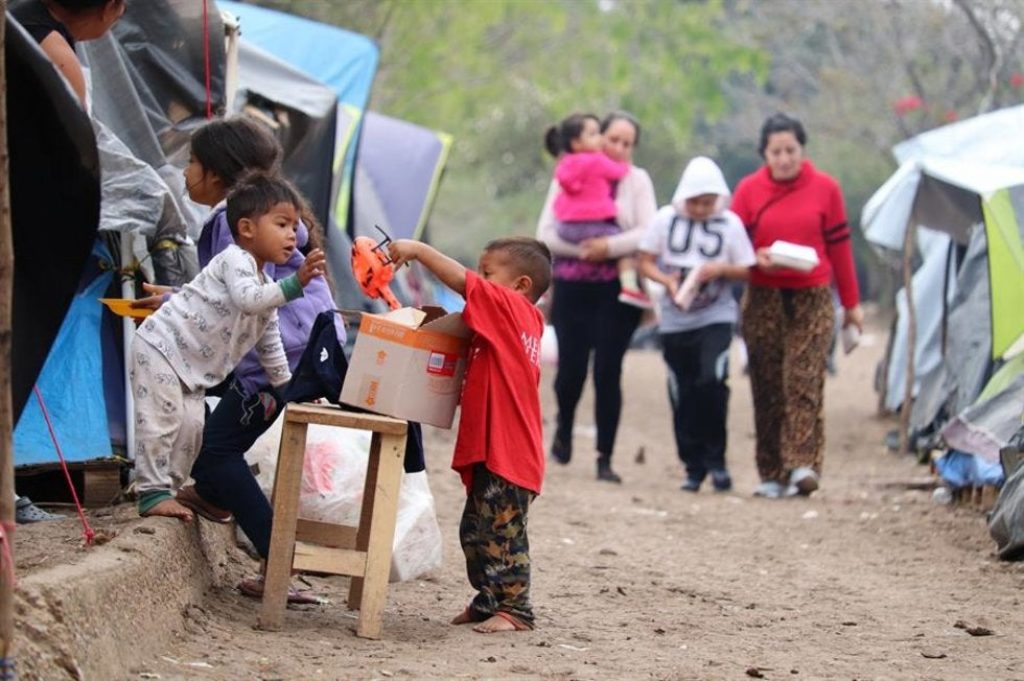The United Nations Children’s Fund on Saturday expressed its “concern about the situation of hundreds of immigrant children in northern Chile after a march ended with the burning of foreign people’s belongings.
“UNICEF expresses its concern about the situation that immigrant children and adolescents are experiencing in Iquique and asks the State to guarantee and protect their rights, thus complying with the international treaties signed by the country ,” the international organization said in a statement. .
The events occurred in the city of Iquique, located on the north coast of the country, where an “anti-immigration” march was deployed this morning that ended with attacks on foreigners: a group burned tents, cars, clothing and other items of people who slept in the street waiting to regularize their immigration status.
The UN special rapporteur on the human rights of migrants, Felipe González, also spoke about the known facts in Chile and described the arson attack on the belongings of immigrants as an “inadmissible humiliation” .
“The xenophobic discourse, assimilating migration to crime, which unfortunately has become more and more frequent in Chile, feeds this kind of barbarism,” he said.
To date, there are around 3,500 migrants -according to some neighbors- who are stranded on the streets of Iquique, most of them after having entered Chile through non-authorized border crossings and crossing the route to the coast.
Most come from Venezuela looking for an opportunity in Chile, but amid sanitary restrictions, immigration policy and their scarcity of economic resources, they are trapped without being able to continue their journey through the country, sleeping in shelters or in makeshift camps on the streets.
According to the Investigative Police (PDI) of Chile, between January and July of this year 23,673 complaints were registered for entering the country through unauthorized passages, which represents 40% of all 2020.
